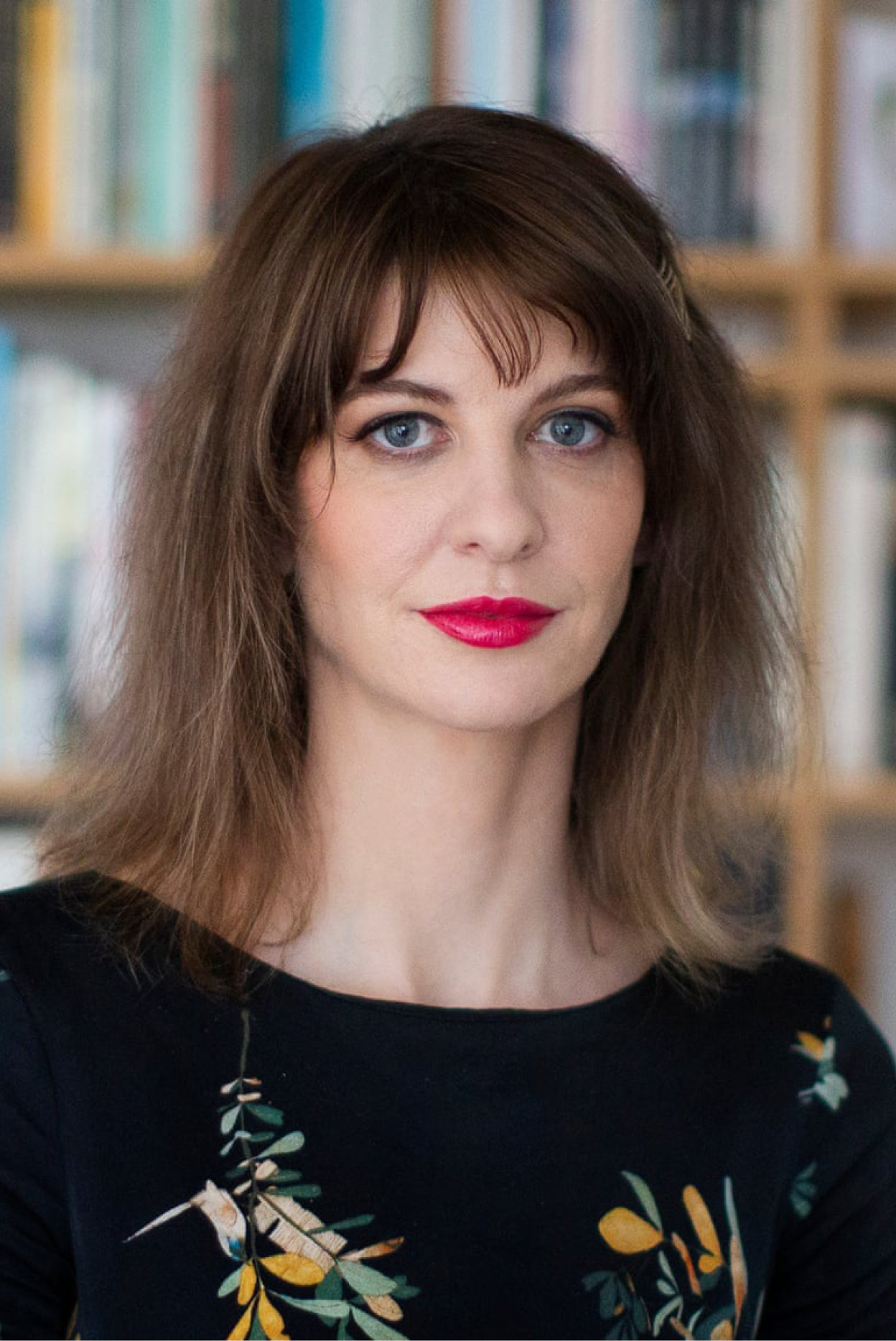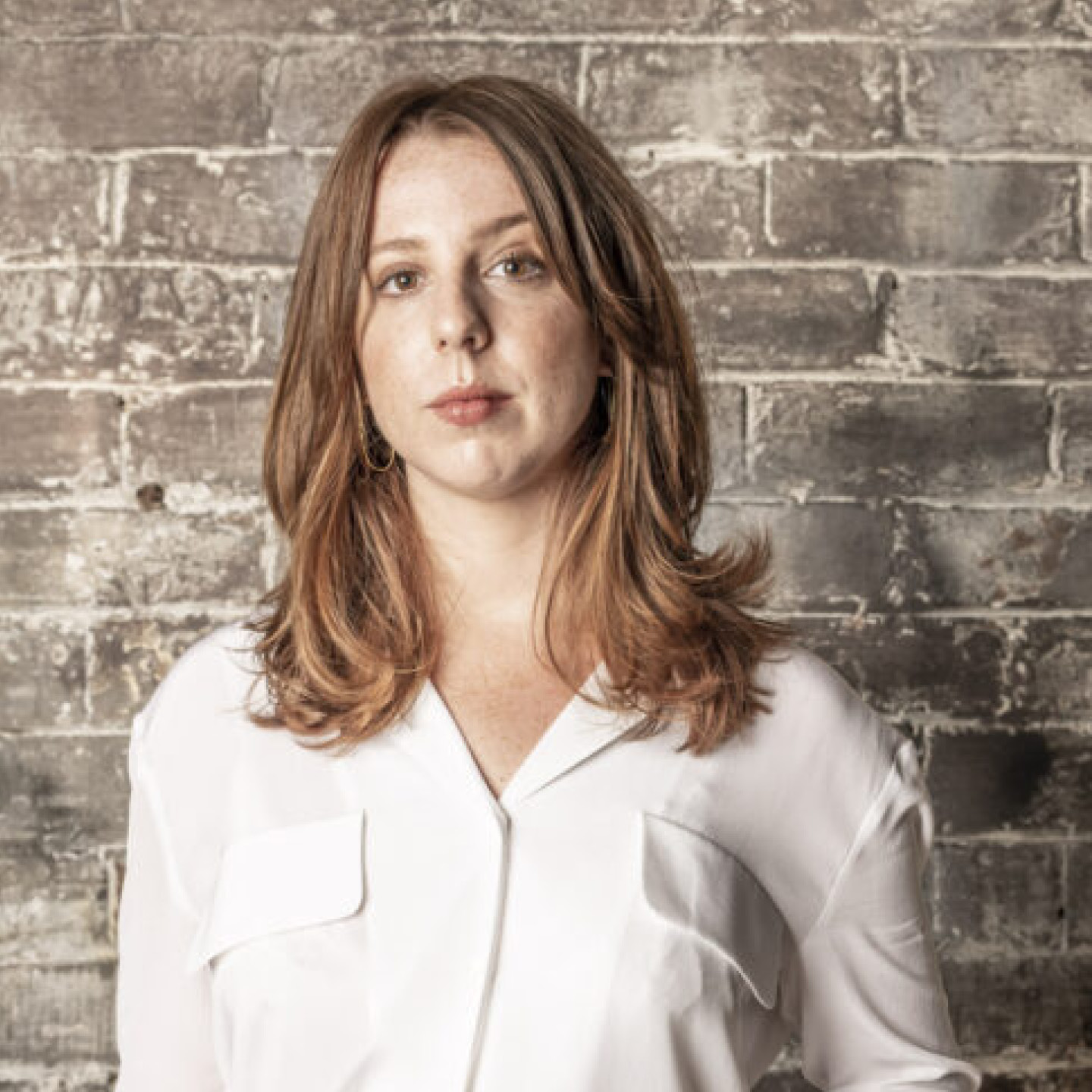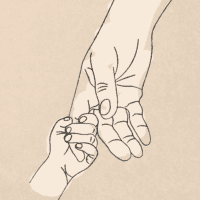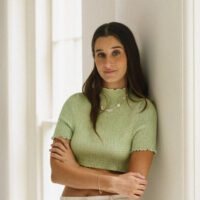As a public health researcher, Gemma Carey knows the value of vaccination – but when the COVID-19 vaccine becomes available here in the next few months, she won’t be getting it.
After experiencing a bout of flu in 2012, Carey, 36, developed a rare auto-immune disorder called Guillain-Barré syndrome, which causes the immune system to attack the body’s nervous system.
For weeks, Carey, previously a keen runner, found herself bed-ridden, unable to use her arms or legs. If she contracts COVID-19, these debilitating symptoms could return. Even a vaccine risks triggering another episode.
“That’s why we need everyone who can get a vaccine to do so, because the more people who are vaccinated, the more people like me (who can’t get it) won’t need to put ourselves in harm’s way,” says Carey, who is also an author.
News earlier this month of pharmaceutical giant Pfizer’s successful vaccine trials was greeted with relief around the world, prompting a scramble by governments to secure sufficient supplies for their populations. Australia has signed deals with the University of Oxford in the UK, American pharmaceutical companies Novavax and Pfizer, while also developing its own vaccine at the University of Queensland.
But developing a vaccine is just the beginning. The next step is ensuring that Australians actually take it.
It’s estimated that 70-95 per cent of Australians need to be vaccinated against COVID-19 to achieve herd immunity – and therefore protect people who can’t be vaccinated, like Carey. Although it’s not known how many people will be medically exempt from the vaccine, it’s likely that cancer patients, transplant recipients and the immunocompromised will be unable to have the vaccine.

In Australia, surveys have suggested that the vast majority of people plan to get the vaccination, and that we have one of the highest “vaccination intent rates” in the world. And yet there is a small minority of Australians who feel uneasy – or outright hostile – towards the prospect of vaccination.
A survey of 2,000 people compiled by the ABC found 16 per cent of respondents were “very unlikely to,” “somewhat unlikely to” and “unsure of” getting the COVID-19 vaccine when it becomes available. Another survey of 3000 adults by the Australian National University found “high levels of COVID-19 resistance”, with three in five Australians saying that will “definitely” get the vaccine.
In other countries, scepticism towards vaccinations is even more widespread. In New Zealand, one study found that one in four people are “vaccine hesitant”; in the US, as many of one third of Americans have indicated they might refuse the COVID-19 vaccination, including one in three nurses who are part of the American Nurses Union.
They drive me a bit nuts. I find it incredibly frustrating, selfish and anti-science.
“They drive me a bit nuts,” says Carey of the so-called ‘anti-vaxxers’ (people who refuse to get vaccines). “I find it incredibly frustrating, selfish and anti-science. Why would you not believe the 99.9 per cent of scientists who’ve trained most of their lives in this field [and are] telling you that this is the best thing for you and for your community?”
If Carey seems passionate about the need to vaccinate, then those who are anti-vaccination are just as vocal.
The outcry
The outcry against a possible COVID-19 vaccine began months before any vaccine had been developed. In May, huge protests erupted across the US, with anti-vaccination protestors carrying signs saying, “Bill Gates you’ll have to KILL me before you VACCINATE me.”
The same month a documentary-style video called Plandemic produced by conspiracy-theorist Mikki Willis racked up eight million views globally, falsely claiming that a COVID-19 vaccine could kill millions.
Overseas, as well as here in Australia, social media fuels the anti-vaccination movement. While it’s difficult to know exactly how many anti-vaccination activists there are in Australia, several local Facebook groups have more than 20,000 members, and a recent petition against government penalties for anyone refusing the vaccine drew 30,604 signatures.
Behavioural scientist Professor Julia Leask has spent the past two decades researching vaccine hesitancy and refusal. She says there’s an array of reasons people choose not to be vaccinated – starting with practical and logistical barriers like location, price and time.
“Then there are those who are strongly opposed to vaccination, ranging from those who have questions and concerns about vaccines, to those who are completely against it because they think it’s unnatural or dangerous, and also the anti-vaccination activists who are vocal about their opposition.”
Dr Tomas Rozbroj, a Postdoctoral Fellow at the Monash Department of Clinical Epidemiology, says it’s important to recognise that vaccine refusers aren’t one homogenous group.
Reasons for vaccine hesitancy vary, and can include fears about contamination and uncleanliness, a phobia of needles, religious beliefs, natural health leanings and anti-establishment sentiment. “Safety concerns are obviously the biggest reason people refuse vaccines.”
Safety concerns are obviously the biggest reason people refuse vaccines.
“And with COVID-19 I think there is concern in the community that the vaccine has been pushed through too quickly,” he continues. “With that said, if the COVID-19 vaccine was available today, I would have it and I would have no concerns about it. The system for testing vaccines is extremely rigorous. It’s quite ironic that vaccines have so much controversy around them when they’re some of the best-tested medical interventions out there.”
He emphasises that people who refuse vaccines aren’t generally uneducated, and that, in fact, research has shown they have high health literacy. “Vaccine refusers see themselves as people who do their research,” says Dr Rozbroj, who notes that vaccine refusers often trust sources they’re “most personally connected to” over mainstream media.
The roll-out
Right now, the government forecasts that the first vaccine will be available in March, with vulnerable groups like elderly people and healthcare workers prioritised before the vaccine is steadily rolled out, so that anyone who wants it will have it by the end of 2021.
Vaccine refusers see themselves as people who do their research
In a report released last week, the Australian COVID-19 Vaccination Policy, the government noted that the vaccination roll-out will be “significant in scale and complexity”, with a number of potential vaccines under consideration – each potentially suited to different population groups.
GPs, pharmacists and possibly even large workplaces will likely set up clinics and administer the vaccines, alongside schools (if the vaccines are licensed for children) and dedicated clinics. Meanwhile, specialist teams will be sent to vaccinate high-risk populations, including those in aged-care facilities.
Certainly, the rollout of COVID-19 vaccinations will occur on an unprecedented scale, both nationally and globally. In the US, The White House has already announced that the military will facilitate their programme; in the UK, the government has advised the country’s 1000+ GPs that they will need to stay open from 8am to 8pm to administer the jabs.
Encouraging Australians to be vaccinated
So far, no country plans to make the vaccine mandatory, although France is currently debating it.
In August, Prime Minister Scott Morrison told radio station 3AW that he wanted the vaccination to be “as mandatory as possible”.
That day, Deputy Chief Medical Officer Dr Nick Coatsworth also held a press conference announcing that the government was considering penalties for those who refused to be vaccinated. “There needs to be some sort of incentive stick, perhaps, through the current programmes, including ‘no jab, no play’.”
Dr Coatsworth suggested that anyone who wasn’t vaccinated could be refused entry to pubs, restaurants and public transport. But he admitted that the government had no mechanisms to enforce those sorts of measures.
There was an immediate backlash, and Mr Morrison was forced to backtrack and clarify that the vaccination wouldn’t be compulsory.
However, last week’s report does raise the possibility of penalties for those refuse vaccinations, stating: “There may be circumstances where the Australian Government and other governments may introduce border entry or re-entry requirements that are conditional on proof of vaccination.”
It’s not so far-fetched to imagine that borders will be closed to anyone who isn’t vaccinated. Similar measures are already in place in Dubai, where anyone wanting to board an Emirates flight must present a negative COVID-19 test certificate.
It’s also possible that some workplaces, particularly those who deal with those vulnerable to the virus – like hospitals – might make vaccinations a condition of employment.
In a statement to PRIMER this week, the Health Department said, “If and when a COVID-19 vaccine is proven safe and effective for us, it will be made available to all Australians who choose to be vaccinated. It will not be compulsory.”
The statement continued: “We are confident, given Australia’s high vaccination coverage rates, Australians will take up a safe and effective COVID-19 vaccine in equally high numbers.”
We are confident, given Australia’s high vaccination coverage rates, Australians will take up a safe and effective COVID-19 vaccine.
While it’s true that vaccination rates in Australia are high (the average childhood vaccination rate is above 92 per cent, compared to the global average of 82 per cent), this is the result of a school-based vaccination programme – quite a different proposition to mass-vaccinate an adult population. And even now there are pockets around the country – like inner-city Sydney, Sydney’s Eastern Suburbs and Byron Bay – where immunisation rates are lower than the national average.
Professor Leask believes that education and awareness campaigns will be crucial to the vaccine roll-out. “We need to make people confident in the vaccine’s safety and effectiveness,” she says.
Importantly, authorities will need to counter any fears that the COVID-19 vaccine has been fast-tracked and that corners have been cut. Considering the US distribution plan is literally called Operation Warp Speed, it’s a serious undertaking.
It will also be crucial, she says, to engage in a two-way conversation with vaccine refusers. “It’s not sufficient just to broadcast out messages, you also need to listen to community beliefs and concerns – and respond to those. [A communications plan] should include systems for listening to community sentiment, tracking attitudes over time and social media listening strategies to look at misinformation or conspiracy theories.”
To do this, social media sites like Facebook, Instagram and Twitter will need to play their part. Already, Facebook has already started attaching World Health Organisation links to any posts that mention the COVID-19 virus.
Some countries have already set up special units to monitor social media for misinformation. In the UK, a counter-disinformation unit is working alongside the UK spy agency, which is focused on identifying false claims pushed by “hostile states”.
Another strategy should involve drawing on the positive power of social networks, says Professor Leask. “Being a positive voice for vaccination can make such a difference. If you have the vaccine, let people know, be a role model,” she says, adding that employing social media influencers as vaccine ambassadors would be a “reasonable option.”
Being a positive voice for vaccination can make such a difference. If you have the vaccine, let people know, be a role model.
Dr Rozbroj says that to do all of this we need to first understand vaccine refusers and their reasonings – and, ultimately, treat them with respect. Like all of us, vaccine refusers want to be heard, not ridiculed. “We should acknowledge that they have done hard work [and research] to make their own decisions, and then try to persuade them but not patronise them,” he adds.
As a public health researcher as well as someone whose life is dependent vaccine uptake, Carey is eager to spread awareness. Her work has taught her that appealing to community values will encourage vaccine uptake. In other words, emphasising that getting the COVID-19 vaccines won’t just help protect you and your family, but others in the community.
Should people with Guillain-Barré be able to get a COVID-19 vaccine in years to come after further testing, research and clinical trials, Carey will be first in the line. “I wish I could get the vaccine. The health advice is that I should probably never get the vaccine, but I will get it after I’ve seen it in a large enough population group. That’s how much I believe in vaccines. Weighing up the risks; the vaccine could cause me some problems, but [catching] COVID-19 will be devastating,” she says.
As Carey prepares to spend Christmas alone in lockdown with her husband, she is slowly coming to terms with the fact that she won’t see her sister, who lives in America, until at least 2024.
“My life is going to be very small for a very long time. I won’t be able to travel until we really have COVID-19 completely under control, it will be too dangerous for me to risk it before then,” she says. “The vaccine isn’t a silver bullet. I’m hoping that should we ever return to something normal, there will be more awareness and consciousness around viruses, meaning people won’t go to work sick, will keep using hand sanitiser and covering their mouth when they cough.” And that people who can get vaccinated, will do so. For the greater good.
Want more stories like this? Sign up to PRIMER’s weekly newsletter.
Gemma Carey is a public health researcher – and also the author of No Matter Our Wreckage, published by Allen & Unwin, and out now.










2 Comments